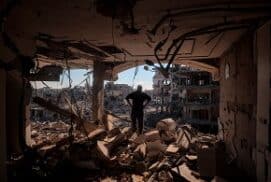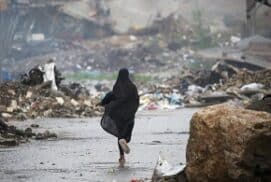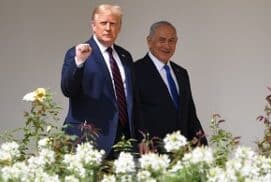Hussein Ibish 24 February 2025
Saudi Arabia hosted a meeting on February 21 with all six Gulf Cooperation Council countries plus the crucial additions of Egypt and Jordan to begin crafting a formal Arab response to President Donald J. Trump’s fantastical scheme to redevelop Gaza after removing its 2.2 million Palestinian residents. Trump’s supporters and officials claim that this sudden Arab urgency to respond with an alternative to his Gaza plan is a diplomatic achievement and the real purpose of his radical proposal. Yet whatever the Arab countries come up with at this GCC +2 meeting, or at the March 4 full convening of the Arab League, will not be practicable given Israel’s policies.











